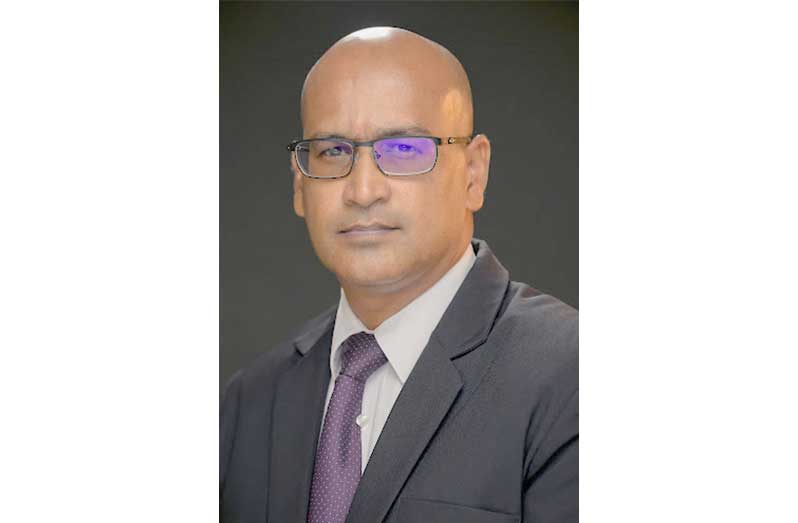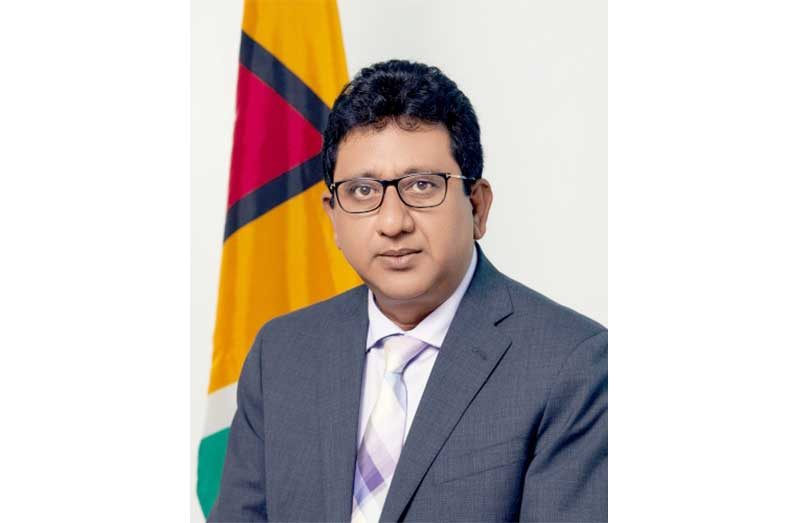ACTING Chief Justice Navindra Singh is expected to make a ruling tomorrow in the case filed by the Forward Guyana Movement (FGM) candidate against the Guyana Elections Commission (GECOM).
The case, which was filed through the party’s candidate, Krystal Hadassah Fisher, seeks to block the September 1 General and Regional Elections unless its candidates are included on the ballots in all 10 administrative regions.
The case reportedly centres on the party’s exclusion from Regions Seven (Cuyuni-Mazaruni), Eight (Potaro-Siparuni), and Nine (Upper Takutu-Upper Essequibo), where the party is not contesting Regional Democratic Councils (RDCs) seats.
According to the party, the Guyana Elections Commission’s exclusion of parties from regions where they are not fielding RDC candidates is unconstitutional, discriminatory, and undermines proportional representation.
They are further asking the court to rule that the elections without its inclusion on all regional ballots are null and void.
Meanwhile, giving a breakdown of Wednesday’s hearing, Attorney-General Anil Nandlall, who is a party to the case, stated that the attorney for the FGM candidate, in response to the submissions made by him and GECOM’s attorney, introduced new additional submissions to the case.
FGM’s attorney, Vivian Williams contended on Wednesday that in interpreting and applying the Representation of the People Act (RoPA) that GECOM has violated the Constitution.
“If you are alleging violation of the Constitution, you have to plead your case in that manner; you have to identify the provision of the Constitution that you are claiming is being violated; you have to, in an affidavit, set out a substrata of evidence detailing facts that have led you to the conclusion that this Article is being breached, and that must be clearly set out in your pleadings,” Nandlall said.
He added that one cannot decide to make such an allegation halfway through or at the end of the case.
As such, he noted that he had to point this out to the court, as broad allegations cannot be made that citizens are being denied the right to participate in the electoral process, among other things.

“Those are arguments for a political platform maybe… in court, you have to be forensic, you have to be clinical, you have to identify the provision that is being breached and then show how it is being breached by evidence,” he said.
Nandlall told members of the press on Wednesday morning that there was a last-ditch effort and a desperate attempt to bring in broad, generic concepts, arguing that there is a constitutional violation because of the manner in which GECOM is applying ROPA.
He went on to say that it was the Forward Guyana Movement that decided that they would not participate in Geographic Constituencies Seven, Eight and Nine.
Nandlall said that it was disclosed early on that the applicant became aware of the alleged wrong in July, when GECOM made the publications of the requisite documents.
He disclosed that as such, this case could have and should have been filed at that time, having regard to the date fixed for the elections.
“The date was fixed for the election long before this case was filed; the election can’t be subject to this case, but the case can be subject to the election,” he said.
Meanwhile, GECOM’s attorney Arudranauth Gossai highlighted that their arguments are in compliance with ROPA.
Gossai argued that the law is clear on the requirements for parties contesting general elections, and how the ballot should be structured.
He pointed out that the Representation of the People Act (ROPA) sets out minimum requirements, noting that “in order to contest a general election, there is a minimum requirement. You have to contest six of the geographical constituencies. So you can’t submit a list for five; you will not be eligible to contest the general election”.
According to him, once Nomination Day closed and the lists were vetted, GECOM published on July 23 the approved political parties and the constituencies they qualified to contest. “GECOM then has to move to Stage Two, which is to prepare the ballot for the election. And the law says Section 39A of ROPA that for each geographic constituency, it must contain the list of the political parties which are contesting. Contesting can only mean the parties who have submitted lists that region for that geograFGM phic constituency,” he argued.
Addressing the contention raised by the FGM, which argued that its national top-up list entitled it to appear on all regional ballots, the attorney rejected that interpretation. “That’s not how it works,” he stressed, explaining that votes are first cast for constituency lists, and then simultaneously applied to the national top-up. “The argument I have made, and the argument which GECOM has been making, and it is in ROPA, and the CCJ has given its blessings, [is] that you’re not voting for a national top up list. The national top up list, as the word suggests, is in addition to something else.”
He further underscored that a party cannot rely solely on the national top-up system without fielding candidates at the constituency level. “In other words, if you don’t contest in Geographic Constituency Number Nine, you can’t get the vote for your top-up list, because you don’t have a constituency list,” he told reporters.
The case following the hearing of submissions on Wednesday was adjourned to Friday, August 29 for ruling.



.jpg)








